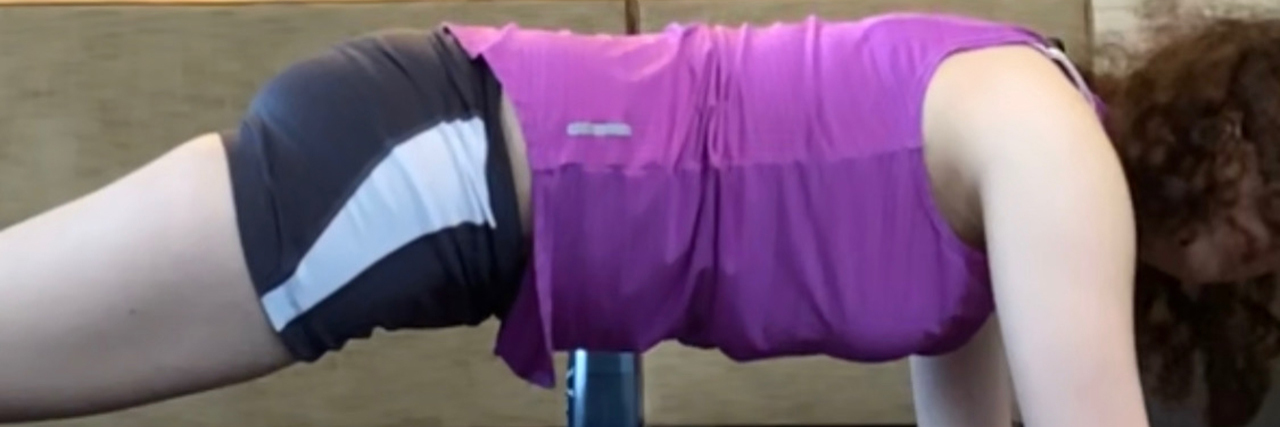When I was little, instead of using tennis rackets for their proper use, I would turn them into a tool for drawing smiley faces in the dirt. I would also opt out of participating in matches to hold hands with a preschool friend. I did try to keep up with tennis in middle school and some of high school. Then one day I just… stopped. Found excuses to indulge on my laptop, phone, or play video games.
I will admit that part of the reason I didn’t do any exercise was simply because I was lazy. But reflecting back on my past experiences, I do think there is another, more complex reason.
I am neurodivergent. Specifically, I am autistic and have a generalized anxiety disorder. This means that my inner world functions differently from a neurotypical and allistic (non-autistic) person’s world. When undisturbed by the chaotic and unexpected, my inner world is a smooth, steady path. Technology used to fit well with that inner world: I could choose when to message people, decide what websites or apps to visit, and indulge in my special interests. With exercise, a part of the outside world, I felt overwhelmed by the constant movement and from spending time away from what was familiar to me.
Not only was exercise an overwhelming factor in the outside world; it was also something that was forced on me. Growing up, I already felt pressure to blend into a seemingly dominant neurotypical society. Exercise, particularly in middle school gym, was another demand I had to meet. It was miserable having to run laps and come out in last behind my peers, everyone resting on the grass while I jotted down my run time as 12 minutes. Being self-conscious of my autistic traits and comparing my athletic abilities to others’ contributed to a heavy state of depression.
When I started attending college, I realized there were times I actually couldn’t stand being in my inner world. Intrusive thoughts and anxieties boomed loudly even as I attached myself to the familiar. So, I decided to ask my parents if I could get a trainer.
Initially, even though this was my choice, exercising with a trainer and on my own felt like an obligation. Transitions are difficult for me as an autistic person. I also faced societal pressure from the “healthy lifestyle” when I struggled to exercise on my own time. The “healthy lifestyle” does not take the nuances of wealth, class, accessibility, and disability into account. It determines that if you aren’t exercising a certain number of times, if you aren’t in the moment, then you aren’t a good person. This negative ideology overwhelmed my neurodivergent mind, which thinks in extremes, and discouraged me from self-exploration.
One day, my current trainer, ever the imaginative person, asked if she could bring boxing mitts to a session. To my surprise, I discovered that I loved punching — the sound and feel of the mitt hitting the glove, how air seemed to seep out of my body when I drove my hand forward. She also started taking me to the gym and showing me how the machines worked. Exercise became more fun for me once I started playing around with what I enjoyed, my autistic self loving the new sensations and routine.
Unfortunately, our story doesn’t end here. Change always snaps its jaws like a springing alligator. The familiarity of the boxing gloves and gym vanished when the pandemic struck. This disruption was greatly upsetting; thinking about it still causes my heart to crack. Fortunately, my trainer and I continued finding ways to make our routines work over FaceTime. When we were training twice a week, we decided to dedicate one day to core exercises and another to martial arts. When our sessions were recently cut down to once a week, my trainer encouraged me to write what I would like to focus on. These decisions provide me with autonomy I hadn’t experienced in the past.
I have come very far. While I may not have big muscles to show off, I swell with pride when I hold a plank for nearly a minute, or achieve 15 push-ups, or curl up a weight. But I must admit, my anxieties are continuous. I feel extreme guilt that I struggle to build my own exercise time and stay in the moment.
Still, I am proud that I made a choice to work with a trainer, a choice to exercise at all. And I realize as I write that when I place high expectations on myself, I am mimicking how society placed high expectations on me as a neurodivergent person. Perhaps I do not need a perfect routine. Maybe it is enough that I am learning to live healthy on my own terms.

